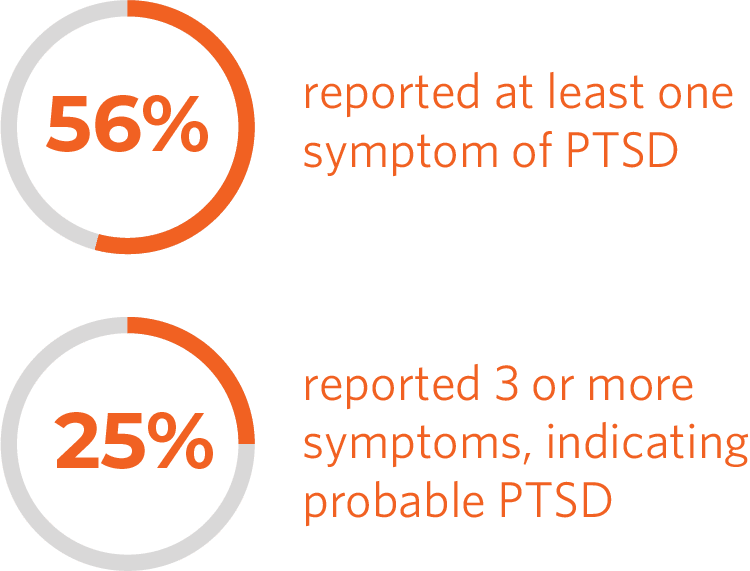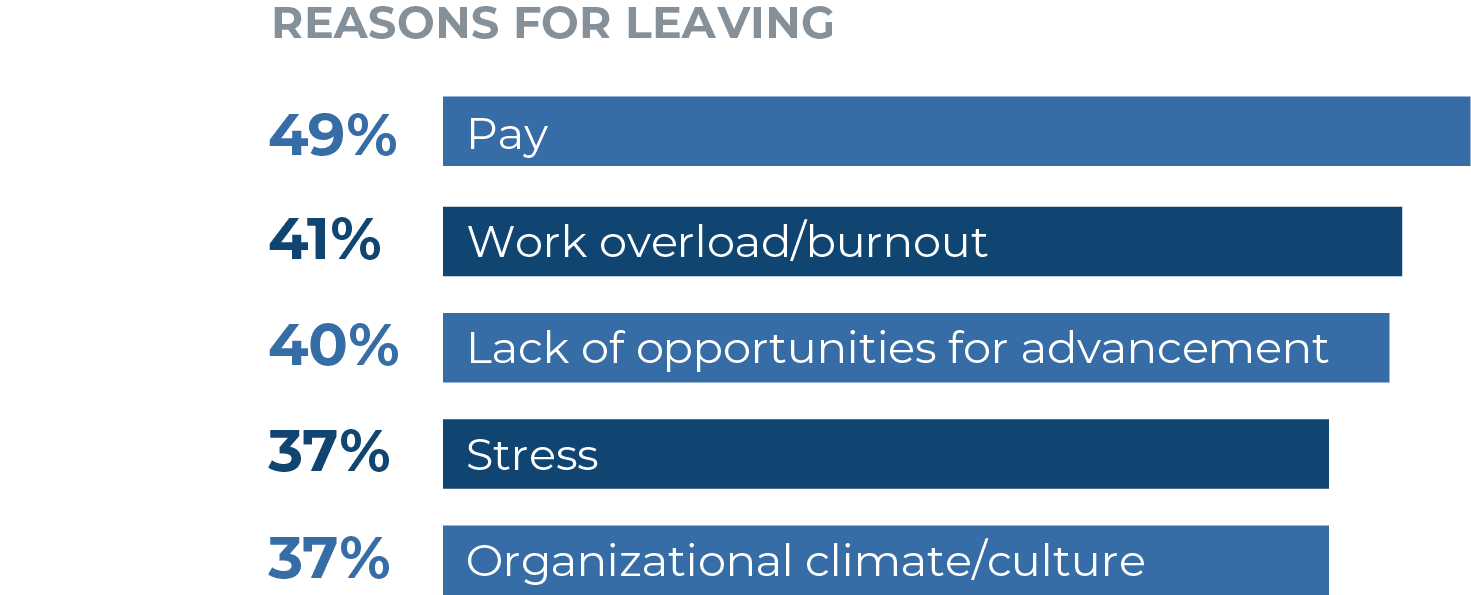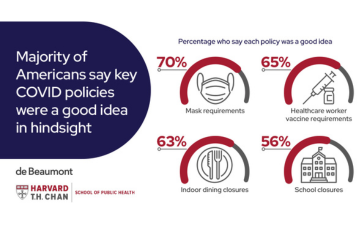More than half of America’s public health workers report at least one symptom of post-traumatic stress disorder (PTSD) as a result of the COVID-19 pandemic, according to a new survey of nearly 45,000 employees in state and local government public health departments. The study reveals high levels of stress, burnout, and intent to leave among public health employees, many of whom have faced threats and harassment from officials and community members who have opposed their guidance on pandemic mitigation efforts, including masking, social distancing, and vaccination. Read the research brief.
The Public Health Workforce Interests and Needs Survey (PH WINS) was conducted by the de Beaumont Foundation and the Association of State and Territorial Health Officials (ASTHO) between September 2021 and January 2022. Previously conducted in 2014 and 2017, PH WINS is the only nationally representative survey of state and local government public health employees.
Key Survey Findings
PTSD and Mental Health

- More than half of public health workers (56%) reported at least one symptom of post-traumatic stress disorder as a result of the pandemic.
- One in four (25%) reported experiencing three or four symptoms, indicating probable PTSD.
- One in five public health workers (22%) said their mental health is either “fair” or “poor.”
Harassment and Interference
Throughout the pandemic, the job of public health workers has been made more challenging by community divisiveness over the need for public health measures, such as masking, to curb the spread of COVD-19. Given their more visible role, public health executives reported greater rates of bullying, threats, or harassment than professionals at other levels.
- Nearly two in five public health executives (41%) agreed with the statement “I have felt bullied, threatened, or harassed by individuals outside of the health department,” compared with 16% of the entire workforce.
- More than three in five executives (59%) agreed with the statement “I have felt my public health expertise was undermined or challenged by individuals outside of the health department,” compared with 29% of the entire workforce.
Turnover and Intent to Leave

- Nearly one-third of the public health workforce (32%) said they are considering leaving in the next year – 5% for retirement and 27% for other reasons.
- Among those who said they’re considering leaving in the next year, 39% said the COVID-19 pandemic has made them more likely to leave.
- Nearly half of public health workers (44%) said they are planning on leaving or retiring in the next five years.
“Public health has been underfunded for decades, but the pandemic has pushed the workforce to their limit,” said Brian C. Castrucci, DrPH, president and CEO of the de Beaumont Foundation. “This is an underreported story that affects the health of communities across the country. These data show that the public health workforce is fast approaching a breaking point.”
Michael Fraser, CEO of the Association of State and Territorial Health Officials, said, “State and territorial health agencies have faced many challenges during COVID-19, but most critically has been the mental health and exhaustion of the public health workforce. Public health professionals and their agencies have sustained a level of effort that is unprecedented in prior public health emergencies. We must focus on helping our public health workforce recover from the COVID-19 response while building more resilient systems for the future that can surge and scale for these kinds of emergencies.”
Steadfast Commitment
Despite the challenges of the pandemic, public health workers remain committed to their organizations, communities, and mission:
PH WINS, which collects information on engagement and satisfaction, intent to leave, training needs, and public health’s most pressing issues, was previously conducted in 2014 and 2017. The 2021 survey was distributed to nearly 138,000 state and local governmental public health, representing 47 state health agencies, 29 big city agencies, and 262 local health departments. It was completed by 44,732 individuals, for a 32.5% response rate.
Read the research brief, “The Impact of the COVID-19 Pandemic: Rising Stress and Burnout in Public Health.” A full report with detailed findings in other areas will be released this summer.






